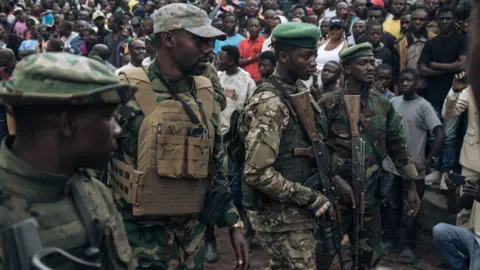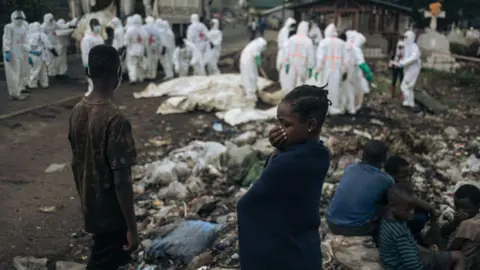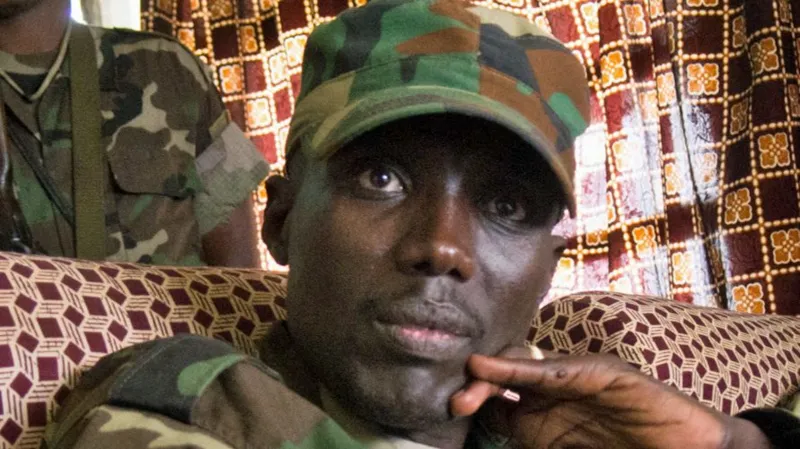The Democratic Republic of Congo (DR Congo) is in a state of turmoil, plagued by the resurgence of the notorious M23 rebel group. Led by Sultani Makenga, the fighters have been surging through the country’s eastern regions, clashing with the national army and seizing key territories. This renewed violence has not only resulted in the tragic loss of thousands of lives within a short span of two weeks but has also escalated tensions between DR Congo and its neighbor, Rwanda.
The roots of this complex conflict are deeply embedded in the tumultuous history of the region and can be traced through the life of Sultani Makenga. Born on December 25, 1973, in Masisi, a town in DR Congo, Makenga’s early life was shaped by the persistent ethnic tensions and warfare that have characterized the Great Lakes region. Raised in a Tutsi family, he abandoned formal education at 17 to join the Rwandan Patriotic Front (RPF), a rebel group fighting for the rights of Tutsis in Rwanda.

Makenga’s involvement with the RPF immersed him in the brutal conflict that culminated in the 1994 Rwandan genocide, where approximately 800,000 Tutsis and moderate Hutus were massacred. Despite the horrors, the RPF managed to overthrow the extremist Hutu government, paving the way for Makenga’s integration into the Rwandan army. Known for his tactical acumen, he rose to the rank of sergeant and deputy platoon commander, specializing in ambush strategies.
However, his military career in Rwanda faced limitations due to his modest educational background and language barriers. Discontent with his prospects, Makenga became involved in Rwanda-backed operations in DR Congo, participating in the 1997 overthrow of Mobutu Sese Seko. This period marked the beginning of his direct involvement in Congolese conflicts, where he served various rebel groups and eventually clashed with Rwandan authorities, leading to his imprisonment.
The late 1990s saw renewed conflict as Rwanda invaded DR Congo, citing the need to neutralize Hutu militias responsible for the genocide. Makenga, released from prison, took command roles in Rwanda-backed rebel factions, earning a reputation as a strategic leader. Despite attempts at peace and integration into the Congolese military through the ‘mixage’ process, Makenga’s disillusionment with the government led him to defect and join the M23 rebellion.

Under Makenga’s leadership, the M23 launched a significant uprising in 2012, capturing Goma, a major city in eastern DR Congo. The rebellion drew international condemnation, with allegations of Rwandan support and widespread human rights abuses, including the recruitment of child soldiers and violence against civilians. Despite internal power struggles within the M23 and international pressure, Makenga maintained his influence, even as he faced sanctions and war crimes allegations.
After a period of relative quiet following the M23’s defeat and Makenga’s flight to Uganda, the group re-emerged in 2021, reigniting conflict in North Kivu province. The resurgence has defied multiple ceasefire agreements, and Makenga continues to play a pivotal role, focusing on strategic operations while delegating public communication to his spokespersons.

Makenga justifies his relentless warfare as a fight for a better future for his children, yet the ongoing violence has inflicted immense suffering on millions of Congolese civilians. Despite facing a death sentence in absentia, Makenga remains undeterred, driven by a commitment to his cause and an unwavering belief in his military mission. The DR Congo’s crisis, deeply rooted in historical grievances and regional power dynamics, shows little sign of resolution as long as figures like Makenga continue to wield influence on the battlefield.
Stay ahead with the latest news on global innovation, leadership, entrepreneurship, business, and tech. Join us on WhatsApp or Telegram for real-time updates. Have a report or article? Send it to report@theinnovationtimes.com.
Follow us on X (Twitter), Instagram, LinkedIn, Pinterest and Facebook for more insights and trends


